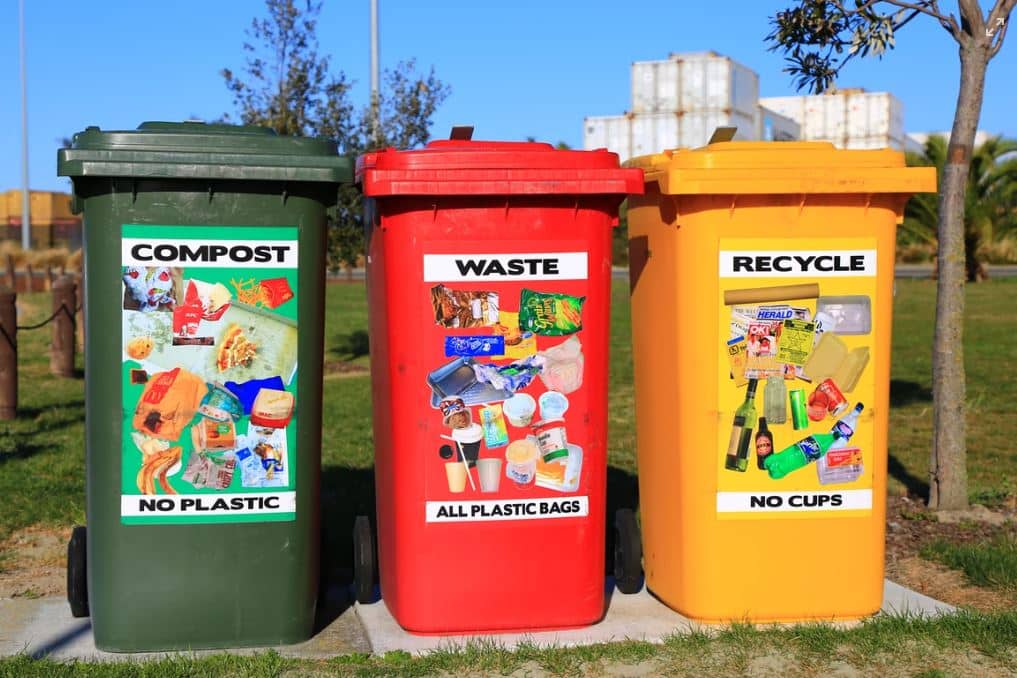Environmentalists Tell Congress Recycling Could Create a Market Opportunity

WASHINGTON — A congressional panel tried to move forward Thursday with a more aggressive effort to recycle the nation’s wastes on the same day the Supreme Court dealt the Biden administration’s environmental agenda a severe setback.
A House Energy and Commerce subcommittee promoted legislation to eliminate more plastics and other solid waste through recycling.
American industries recycle about 130 million tons of waste products each year, which represents between 20% and 32% of the potential supply of recyclable materials, according to industry estimates.
“The American public likes recycling but many people have concerns that what they put out on the curb does not get recycled,” said Rep. Paul Tonko, D-N.Y., chairman of the Subcommittee on Environment and Climate Change.
He said that instead “it ends up in our environment and in our oceans.”
About the same time as he convened his subcommittee, the Supreme Court released a decision that sharply reduced the Environmental Protection Agency’s authority to restrict greenhouse gas emissions that cause global warming.
The court said the EPA lacked an authorization from Congress to set state-by-state limits on emissions that would force them to switch from coal-fired electrical generators. The ruling also said the EPA was unable to satisfy the “major questions” doctrine or “point to clear congressional authorization” to devise carbon emissions limits under authority of the Clean Air Act.
The court’s ruling in West Virginia v. Environmental Protection Agency was a win for coal-producing states resisting environmentalists’ push towards natural gas, solar energy and wind turbines.
It also received sharp criticism from Democrats who want to help Biden fulfill his pledge of environmentally friendly policies.
“In the span of just a week, all of Republicans’ dreams for their extremist political hijack of the Supreme Court have come true,” said Rep. Raúl M. Grijalva, D-Ariz., chairman of the House Natural Resources Committee. “They’ve killed abortion rights. They’ve killed gun control. They’ve killed separation of church and state. They’ve killed fair voting districts. They’ve killed tribal sovereignty.
“And now, with today’s decision to gut the federal government’s ability to keep carbon pollution from some of the country’s biggest climate change offenders in check, they’ve sentenced our planet to death as well,” Grijalva said.
Similarly ominous predictions about solid waste came from lawmakers and witnesses at the Subcommittee on Environment and Climate Change hearing, but with differences of opinion on how to approach the problem.
Tonko referred to plastics that end up in landfills when he said, “Even under the best scenarios, they will sit there for many lifetimes.”
So far, the Biden administration’s main strategy for managing solid waste came from the Infrastructure Investment and Jobs Act approved by Congress last year. The $65 billion investment is intended primarily to promote clean energy transmission by upgrading electrical infrastructure.
A smaller part of it appropriated $375 million to encourage recycling. Much of it is funneled to states through grants that allow them to design their own recycling programs.
Other proposed legislation, such as the pending CLEAN Future Act, would create financial incentives for manufacturers to produce products that reduce pollution, such as by getting rid of plastics and toxic chemicals.
Republicans expressed concern environmentalists’ zeal to reduce pollution might destroy jobs. They recommended market incentives to reduce pollution rather than bans on use of inexpensive components in manufacturing processes.
“Legislation should not lead to de-industrializing the United States,” said Rep. Cathy M. Rodgers, R-Wash.
Rep. David McKinley, R-W.Va., cautioned against unrealistic legislation to eliminate solid wastes that could require Americans to change their lifestyles.
“Only in Washington do we think we can legislate changes in human behavior,” McKinley said.
Industry witnesses said a waste disposal strategy that selects discarded materials capable of being recycled could create an economic opportunity rather than a financial burden for Americans.
“The good news is that businesses are willing to be part of the solution,” said Stephanie Erwin, a representative of the American Sustainable Business Network.
A well-planned national recycling program “will save money, foster innovation and create a million new jobs,” Erwin said.
Lynn Hoffman, co-president of Minneapolis, Minnesota-based recycling company Eureka Recycling, said some industries desperately need the kinds of materials that get thrown away.
“We’re seeing unprecedented interruptions in global supply chains,” she said.
Tom can be reached at [email protected] and @TomRamstack
























